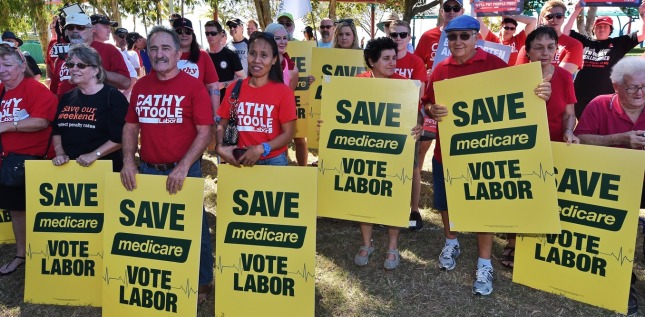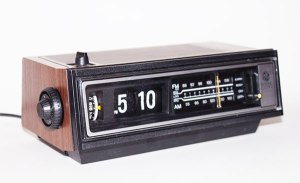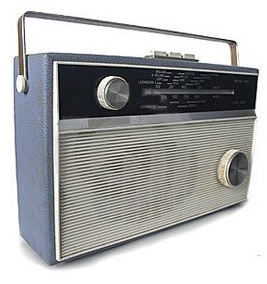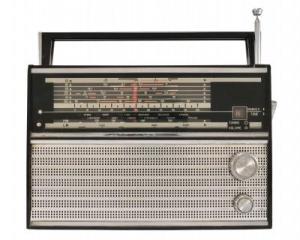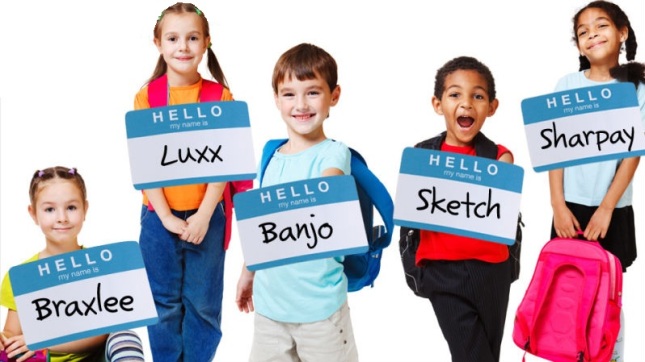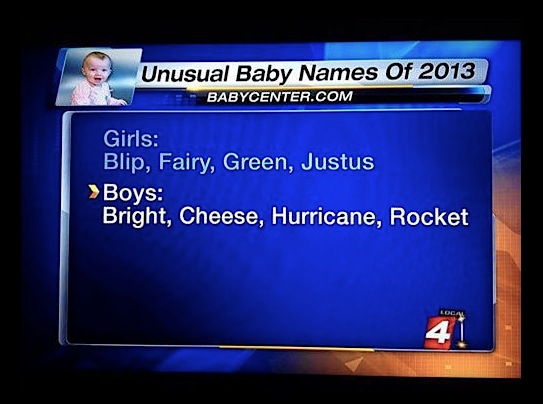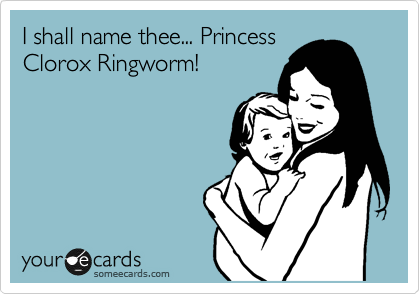Anyone within earshot of this year’s Federal Election couldn’t escape the kerfuffle surrounding the Labor Party’s dirty tricks with what was dubbed “Mediscare”.
I’m pretty sure I just had my own personal Mediscare experience.
You’ll recall that the Liberals accused Labor of contacting some of our most “vulnerable” citizens in the lead-up to election day in July to feed them all kinds of cock’n’bull stories about how Medicare would be sold off if a Liberal Government was returned to power; it remains to be seen exactly how cock’n’bull those stories were (or weren’t), although there’s no sign of them actually doing anything else any time soon, so why should this be any different?
But based on the results of my own private Mediscare, I don’t see how selling the thing off could be in any way bad for anyone. There are so many old-fashioned turns of phrase that immediately spring to mind: the one about how you can’t polish a turd, or the other one that says you can’t make a silk purse from a sow’s ear.
On the fifth of this month I attended a medical appointment, at the conclusion of which I paid the consultation fee—a not insubstantial $500—in full. I was reliably informed by the office assistant that the Medicare claim had been successfully submitted and she duly provided me with a printed receipt showing as much.
I’ve had more than my fair share of old man ailments and medical appointments over the years so, as sad an admission as it is, I’m intimately familiar with how all this stuff works. So when by the end of that week my ‘benefit’ still hadn’t arrived in my bank account, I knew something was amiss.
Now, in anyone’s books, the idea of actually having to phone Medicare, as with any Government department, is a nightmare scenario that’s to be avoided at any cost. So I went to the new(ish) myGov service, a wondrous all-in-one online hub for accessing Department of Human Services functions—these include Medicare, Centrelink, the NDIS, Aged Care, Child Support, Veterans’ Affairs, the ATO… you name it, and if it’s an excessively inefficient, paper-heavy, under-resourced and generally unpleasant place of employment for thousands of sour-faced, jaded bureaucrats, and oft-visited by a colorful cross-section of the great unwashed, then it’s somewhat accessible via myGov.
After what felt like hundreds of clicks, navigating endless pages, unclear labels, misinterpreted links and some of the world’s longest options lists, all the while dodging multiple attempts to convince me to self-serve using the online facilities, or to dissuade me from any form of contact at all, I finally located a link.
Contact us, the page header says, Get in touch, invites the middle column. You can contact us online, in writing, by phone or by visiting us at one of our service centres, it declares, reassuringly. All well and good, if I could actually work out where and how.
Eventually I arrived at a page headed Email us, which included, among yet another list of endless options, the following enlightening detail:
If you have a general question that you can’t find the answer to, and it’s not urgent, you can make a general enquiry by email. Don’t include sensitive information in your email enquiry as we can’t guarantee the security of information sent by this option.
We’ll aim to respond to your enquiry within 28 days via telephone. If we try to call you in response to your message, it’ll be from a private number. To protect your privacy, a voicemail message won’t be left unless you are clearly identified in your voicemail service.
Hmmmm. Well, all I wanted to ask was how long I should expect to wait for a rebate to appear in my bank account. Based on what I’d read, I foolishly, and perhaps a tad naïvely, didn’t feel that providing my name, my Medicare number and a copy of my ‘paid-in-full’ receipt would be considered “sensitive information”, much less cause for not answering my question at all. Besides, I didn’t want account-specific information. I only sent that detail so they’d know who and what the email was about. It really was just a general inquiry about timeframes… wasn’t it?
But almost immediately the email was sent, up popped the auto-generated response which, in part, told me:
We will not respond to your enquiry if it contains or requests any personal information as we cannot guarantee the security of this information.
‘Shit. I’m gonna have to call them, aren’t I?’, I thought to myself. I read it again and continued to ponder the situation. ‘Yep, they’ll consider all that as personal information and, regardless of what I actually want to know, they just won’t respond, so I’m gonna have to call them’.
Oh crap.
After waiting on hold for 47 minutes, I was finally answered by a lady who was, ostensibly, efficient, knowledgeable and pleasant, if not entirely helpful and, indeed, totally lacking any empathy whatsoever. “Oh… I see what’s happened”. I wasn’t sure if she was talking to me, or to herself. “The girl pressed the wrong button”. I sought clarification. “The girl pressed the wrong button when she processed this, she’s marked it as having not been paid in full, but I can see you have”. Some recognition of what’s actually happened. Maybe a promising sign?
“A cheque has already been issued, but it’s been made out to the provider. So you’ll need to either take it to them and they can work out what’s owing to you, or you can take it to a Medicare office and they’ll adjust it and put the money into your bank account straight away”.
A Medicare office!?!? No!!!! That’s the next-worst option after calling them!
OK, so it wasn’t ideal, and I’d had not a hint of apology offered, which was also a bit rubbish. But the situation hadn’t exactly left me below the breadline. And, besides, if a cheque’s already been issued, how long could it possibly take?
If only I’d asked myself “what could possibly go wrong?” at that point, I might’ve foretold how this was going to pan out.
A week later, I received a reply to my email. The email they weren’t going to respond to. For the security of my information, you understand. Not coz they just didn’t want to.
Accessing personal information from an email is restricted to protect your privacy and the integrity of Medicare records.
Our phone line is also open Saturday and Sunday to assist you.
If you are enquiring about a Medicare payment you require, please call the Medicare public line on 132 011, 24/7 and, subject to a security check, a service officer will assist you with your enquiry.
Aha. Like I hadn’t already done that. Just a tad inefficient, I would’ve thought? If they say they’re not going to respond, perhaps they should just stick to their guns and not respond.
That same day, after noting that the cheque hadn’t arrived, I decided—against my own better judgement—to call Medicare again. As with the last call, I was sitting at my desk working on something at the time, so the 34 minutes I spent being deafened by their looped classical music didn’t really put me out. True, it generated a tinnitus-like ringing in my right ear which may cause some inconvenience in the long-term, but at least I didn’t experience any short-term inconvenience. And I’m sure Medicare will cover me for any tinnitus-related treatment I may need in the future. If it hasn’t been sold off.
“Oooooh… yep yep yep… OK… yep, I can see what’s happened”. Must be part of their call centre scripting. Positive reinforcement. I’ll feel better about my interaction with them if they clearly affirm that they know what’s going on. “So… no, a cheque hasn’t been issued yet, I’m not sure why she told you that”. You and me both, love. “Yeah, providers get this wrong all the time, it’s so annoying”, she went on to lament. Oh really? Annoying for who? No doubt you haven’t noticed, but it’s not exactly a barrel of laughs for me either. Have you ever thought that the problem could be with your process and not with the providers? “OK, so if the cheque hasn’t been issued,” I went on, hoping against hope, “can you just cancel it and do an electronic transfer into my bank account?”.
“Ummmmm…. noooooooo”, says she. “it’s already on the report and the report will spool any day now and it just wouldn’t be feasible for us to put through requests to remove random cheques from the report every time someone asked us to, you know what I mean? I mean, it just wouldn’t be feasible, you know? I mean, we’d need to get someone to put through the request and then someone would have to do something at the other end and then… you know?… yeah”.
And then she went on to provide the most bizarre explanation for any mishandling of a customer service issue I’ve ever heard: “It’s like driving a car. If the car stops working, you don’t blame the driver, you blame the car. Well it’s like that with situations like this. It’s been processed incorrectly by your provider, so you can’t blame Medicare for that, you know what I mean?”
Oh yes, dear, I know full well what you mean. I know that you’re trying to deflect blame away from Medicare and onto my Doctor’s assistant, as if she’d pressed the wrong button when she submitted my claim, despite the receipt generated by the Medicare online claim service showing that this absolutely wasn’t the case. I also know that the blame you’re so eager to deflect was blame that I’d neither apportioned nor considered apportioning, mostly because it was clear to me that it was an error made by someone at Medicare, so it was a bit obvious where the blame lay. I also know that I don’t care whose fault it was, I just want the situation sorted. I also know that finding a way to sort the situation is just about the farthest thing from your mind. And I know that detailing the inefficiencies of your own internal processes is far from being the best way to win over an inconvenienced customer. But, most of all, I know that you don’t really give a shit about any of this.
And so, I resigned myself to there being no hope of achieving a resolution any time soon. She couldn’t have the cheque removed from the file. She couldn’t have the cheque cancelled (you don’t need to work for Medicare to know that that’s a load of rubbish!). Nor could she have the payment processed any more quickly than the time it was going to take to process the file, print the cheque and send the cheque via post. So, she told me, I might be waiting another week, or two, or maybe even three… “you know what I mean?”. I know what you mean, alright: this one’s for you, and this one’s for your horse.
That night, I sent Medicare some generic feedback about my experience and their processes generally. I made sure to confirm that I was neither providing, nor seeking, any kind of personal information, and that my only purpose for emailing them again was to provide generic feedback about my recent experience and the ways in which I felt their processes could be improved.
Meanwhile, the cheque finally arrived two days ago—only three weeks after the consultation to which it applies, so I suppose it could’ve been worse. I took it to my nearest Medicare office (they’re pretty thin on the ground these days) which, conveniently, is only 8.2km away… although, in Sydney there’s rarely anything convenient about having to drive anywhere, let alone somewhere that’s 8.2km away.
On arrival, troubling signs abounded from the off. The first was the queue of people stretching beyond the inner-most of two sliding entrance doors. This was a tad off-putting, but I wasn’t in a hurry so it didn’t overly concern me.
Inching forward with the glacial advance of the queue, I noticed the second troubling sign: an armed security guard standing just inside the inner door. What den of iniquity is this? What kind of inglorious hell-hole have I entered?
Oh. I see. Troubling sign number three: it was one of those Medicare/Centrelink combo places. Oh hurrah. Surrounded by the sick and the unemployed, knowing that my taxes are paying for all of them. What a dream come true this was turning out to be.
As the queue continued to edge its way forward, once beyond the inner door the fourth troubling sign became apparent—literally, a troubling sign: AGGRESSIVE BEHAVIOUR WILL NOT BE TOLERATED!!!
I’m totally going to die in this place, I thought to myself.
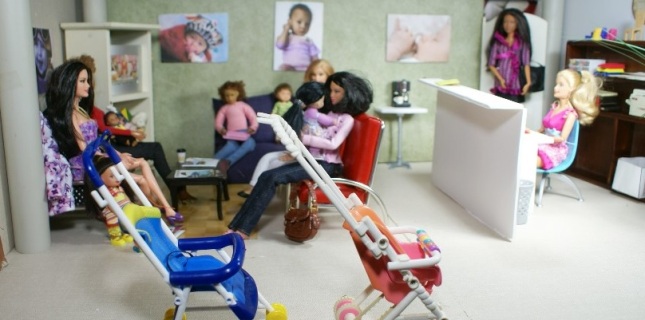 The painfully slow ebb of the queue was explained once I eventually saw the little man with the iPad, resting on a curious-looking iPad-sized lecturn, at the head of the line, listening to people’s reasons for visiting and punching at his screen, one finger-style, to enter their personal details. This, presumably, is intended to be the more efficient, humanised version of the old school “go to machine, press button, take ticket and wait” process. I appreciated the intention and it certainly made sense—if it had worked. But it patently wasn’t effective here. It was taking four times as long to process each customer’s initial inquiry, with no discernible benefit in processing time once they were finally seen by someone. And there was a constant line of people out the front door—clearly, the humanised approach wasn’t working. At least, not with only one person there to provide it.
The painfully slow ebb of the queue was explained once I eventually saw the little man with the iPad, resting on a curious-looking iPad-sized lecturn, at the head of the line, listening to people’s reasons for visiting and punching at his screen, one finger-style, to enter their personal details. This, presumably, is intended to be the more efficient, humanised version of the old school “go to machine, press button, take ticket and wait” process. I appreciated the intention and it certainly made sense—if it had worked. But it patently wasn’t effective here. It was taking four times as long to process each customer’s initial inquiry, with no discernible benefit in processing time once they were finally seen by someone. And there was a constant line of people out the front door—clearly, the humanised approach wasn’t working. At least, not with only one person there to provide it.
And then there was the 45 minutes I sat there, waiting to be seen. 45 minutes. No TV. No music. Not even a screen showing the ticket numbers to call you to a counter. At least they provide a distraction of sorts, if not pure entertainment.
Occasionally the din of sickly coughs and kiddies computer games and cries of restless infants and the almost ceaseless cussing of social security recipients was punctuated by one of the variously accented staff members, badly mispronouncing the name of one of the waiting unfortunates from some unseen location, sufficiently distant from the massing hordes.
Frankly, it was impossible to avoid having Hilary Clinton ‘deplorable’-esque thoughts. No, I didn’t know anything about these people, but I could sure as hell smell enough of them and I wanted out of there at the earliest opportunity.
As I waited, suffocating myself through eight layers of handkerchief to avoid the aromatic blend of body odours that was presently enveloping me like a thick fog, I flicked through my inbox and noticed that I’d only just received a response to the generic feedback I’d sent to Medicare eight days earlier.
Accessing personal information from an email is restricted to protect your privacy and the integrity of Medicare records.
Our phone line is also open Saturday and Sunday to assist you.
If you are enquiring about a Medicare payment you require amended or changed, please call the Medicare public line on 132 011, 24/7 and, subject to a security check, a service officer will assist you with your enquiry.
I trust this information will be of assistance.
…oh go away!
When my name was finally called, it took all of two minutes, possibly even less, for the consultant to take the cheque, take my receipt, have me sign a claim form and send me on my way. “That’ll take two to three days to process the funds to your account”. As she spoke, she almost smiled. Probably because I’d been pleasant, and didn’t smell bad, and had a name she could pronounce without thinking about it, and didn’t yell at her and had a really simple issue.
Prior to a couple of years ago, I had the option of being paid cash. Immediately. Now I have to wait two to three business days for the transfer to be processed. This is because of an efficiency improvement initiative that saw all Medicare payments going electronic in 2014. Efficient? Not for me it isn’t. Improvement? Not for me it isn’t.
Someone of a fragile disposition might’ve gone postal after this. But not me. For me it was a case of, ho-hum, what can I do about it? I smiled, thanked her and took my leave. To be fair, I couldn’t get out of there quickly enough; however long I’d waited, however ridiculous the outcome, nothing was worth staying in that awful place for a moment longer.
So let’s break this down:
- Medicare mistakenly processes my claim
- The Contact webpage says they’ll respond to my general enquiry by telephone, but they never do
- I call them twice, waiting a total of 81 minutes on hold
- On neither call is any empathy shown, nor an apology offered
- On the first call I’m allegedly provided with (more) incorrect information
- On the second call I’m given a whole lot of crap and lies about who not to blame and how stupid Medicare’s processes are
- I wait three weeks to receive the incorrectly issued cheque
- I wait 45 minutes in a dirty, smelly, inefficiently-run Medicare office
- Then I’m told I have to wait another three days to actually get the money that I should’ve gotten three weeks ago.
If I hadn’t spent most of my working life in customer service, of one form or another, maybe I wouldn’t notice so many of the gaping holes here. Maybe I wouldn’t care so much. My blood’s not exactly boiling—I’m a calmer person than that these days, plus I wasn’t really negatively impacted—but, as an end-to-end customer experience, this was pretty appalling.
And I’m only one person. How many other times is this shitty service provided? How often has a Medicare representative received genuine feedback, provided to them in all good faith, and disregarded it out of hand? How many other people, who have no option to go anywhere else for this stuff, have to put up with the same total lack of empathy, no apologies for mistakes, delays or inconveniences, and a barrage of excuses, provider-bashing and finger-pointing?
Mediscare? I’ll give you Mediscare…

